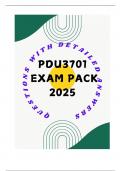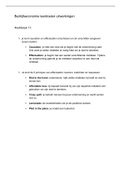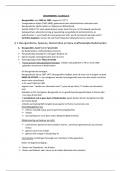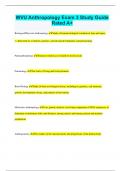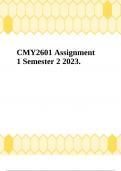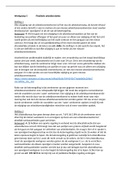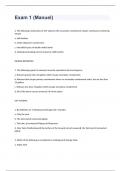Samenvatting
Methodology & Data Analysis 1 - Summary
- Instelling
- Saxion Hogeschool (Saxion)
Includes content taken primarily from the slides and exercises offered in Quarter 3 from the Methodology & Data analysis 1 class from Saxion Enschede’s International Business & Management Studies. Additional images/tables to help studying are included.
[Meer zien]





